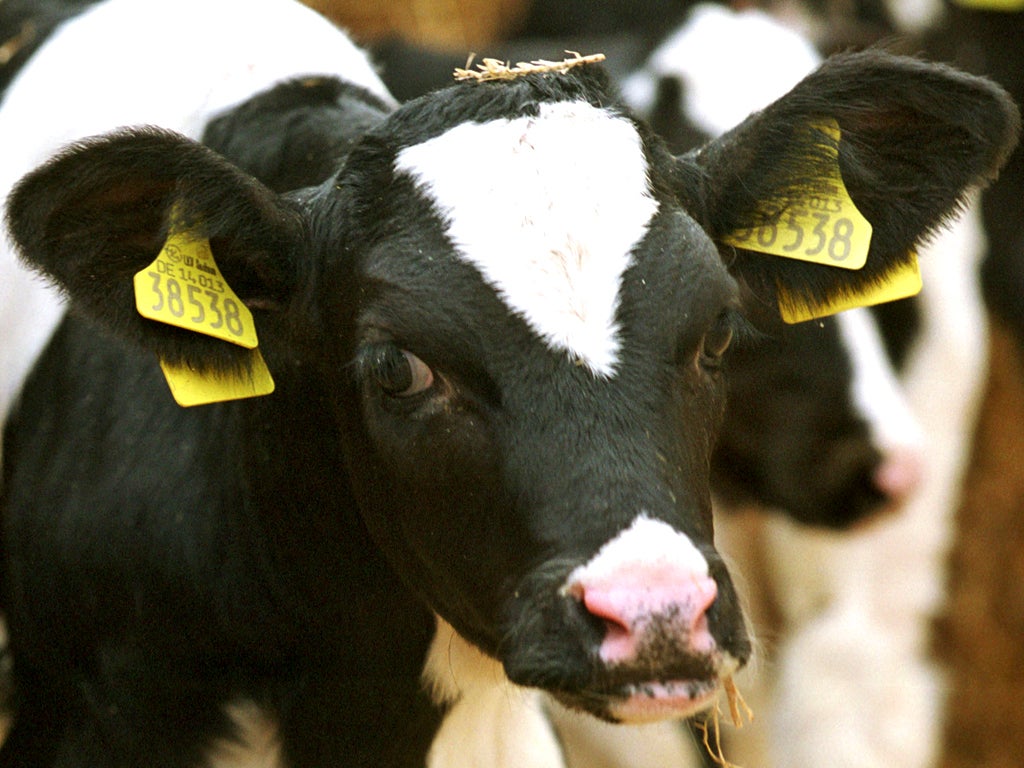Human form of 'mad cow' disease twice as prevalent as previously thought, study reveals
Scientists do not know how many people may be incubating lethal disease vCJD without showing symptoms

Twice as many people as previously thought may be carrying the infectious agent responsible for the human form of “mad cow” disease, a study has claimed. Double the number of people were found with the unusual proteins linked to the variant form of Creutzfeldt-Jakob disease, which is believed to have passed from contaminated beef to humans.
A survey of more than 32,000 appendix samples has revealed that 16 samples were positive for the abnormal “prion proteins” found in variant CJD patients, a degenerative brain disease acquired from exposure to contaminated meat products. The appendix operations were carried out between 2000 and 2012 and the samples were taken anonymously from patients attending more than 40 hospitals in Britain in order to assess the prevalence of vCJD in the population.
So far only 177 people in the UK have been diagnosed with vCJD, along with about a further 50 patients in other countries. Scientists do not know how many people may be incubating the lethal disease without showing symptoms because as yet there is no simple blood test for prion proteins.
Scientists are assuming there is a pool of people who are incubating the brain disease because it takes many years and sometimes decades for the first symptoms to show. Estimating the size of this pool is important for assessing the risk of the infective agent spreading via blood transfusions and hospital equipment.
“These findings have important implications for the management of blood and blood products and for the handling of surgical instruments,” said Noel Gill of Public Health England and colleagues in a study published in the British Medical Journal.
The study found the risk of carrying the prion proteins was about the same for both young and old, as it was for men and women. It was also about the same for different regions of the country, the researchers said.
Sheila Bird, an epidemiologist at the Medical Research Council’s Biostatistics Unit in Cambridge, said that larger samples sizes of about 50,000 each for men and women were needed to make more accurate assessments of how many people may be unwittingly infected with vCJD prion proteins.
“After all, we’ve done BSE-testing in millions of cattle across Europe but not yet surveillance in 100,000 UK human appendices,” Dr Bird said.
Professor David Brown of Bath University, and a former member of the Government’s advisory board on BSE, said the abnormal prion protein is not only present in vCJD but in the sporadic form of the CJD that has nothing to do with bovine spongiform encephalopathy – “mad cow” disease.
“It is important to note the presence of the abnormal protein in the appendix does not confirm an individual will develop vCJD. As the authors themselves point out, the incidence of vCJD is very small in relation to those who were exposed to BSE,” he said. “Therefore this result does not indicate one in 2,000 people carry vCJD, and it could just be down to people who carry the abnormal protein in their appendix,” he said.
“This study suggests people from different age groups and from anywhere in the UK could get vCJD... At most the report suggests a broad range of people could be carriers of a prion disease, which was suspected anyway.”
Professor Azra Ghani of Imperial College London, said: “These results highlight the need to maintain both case surveillance, and precautionary measures to prevent onward transmission over the coming decade.”
Subscribe to Independent Premium to bookmark this article
Want to bookmark your favourite articles and stories to read or reference later? Start your Independent Premium subscription today.

Join our commenting forum
Join thought-provoking conversations, follow other Independent readers and see their replies